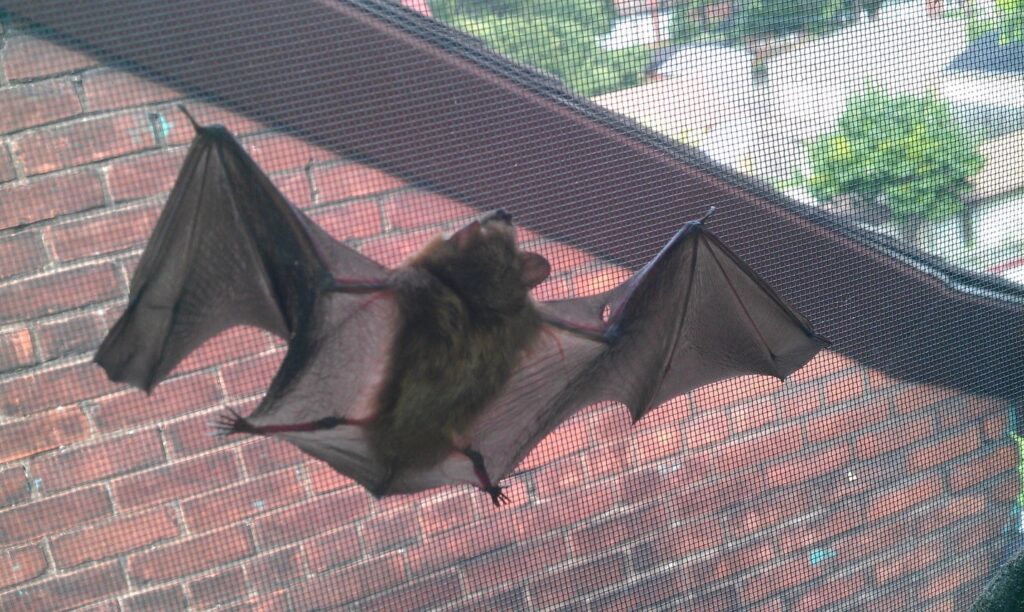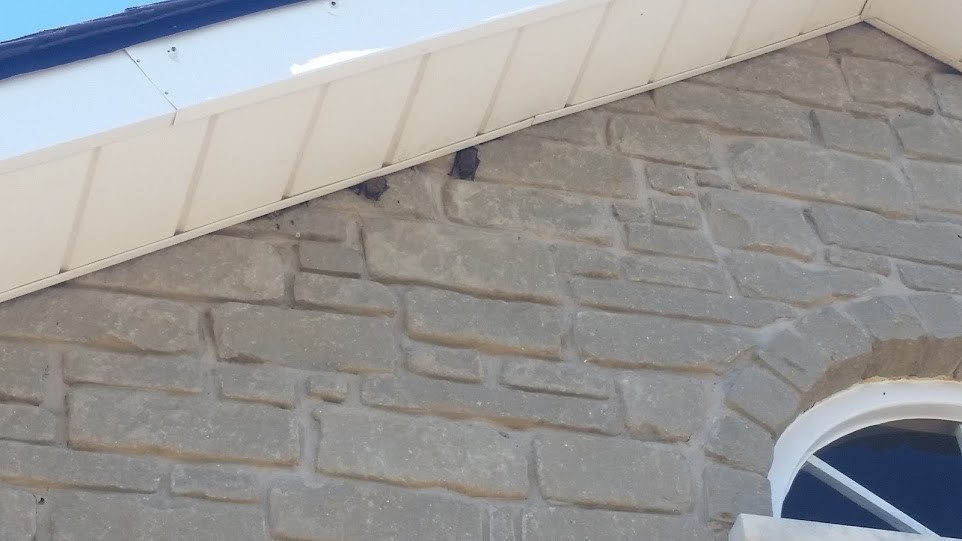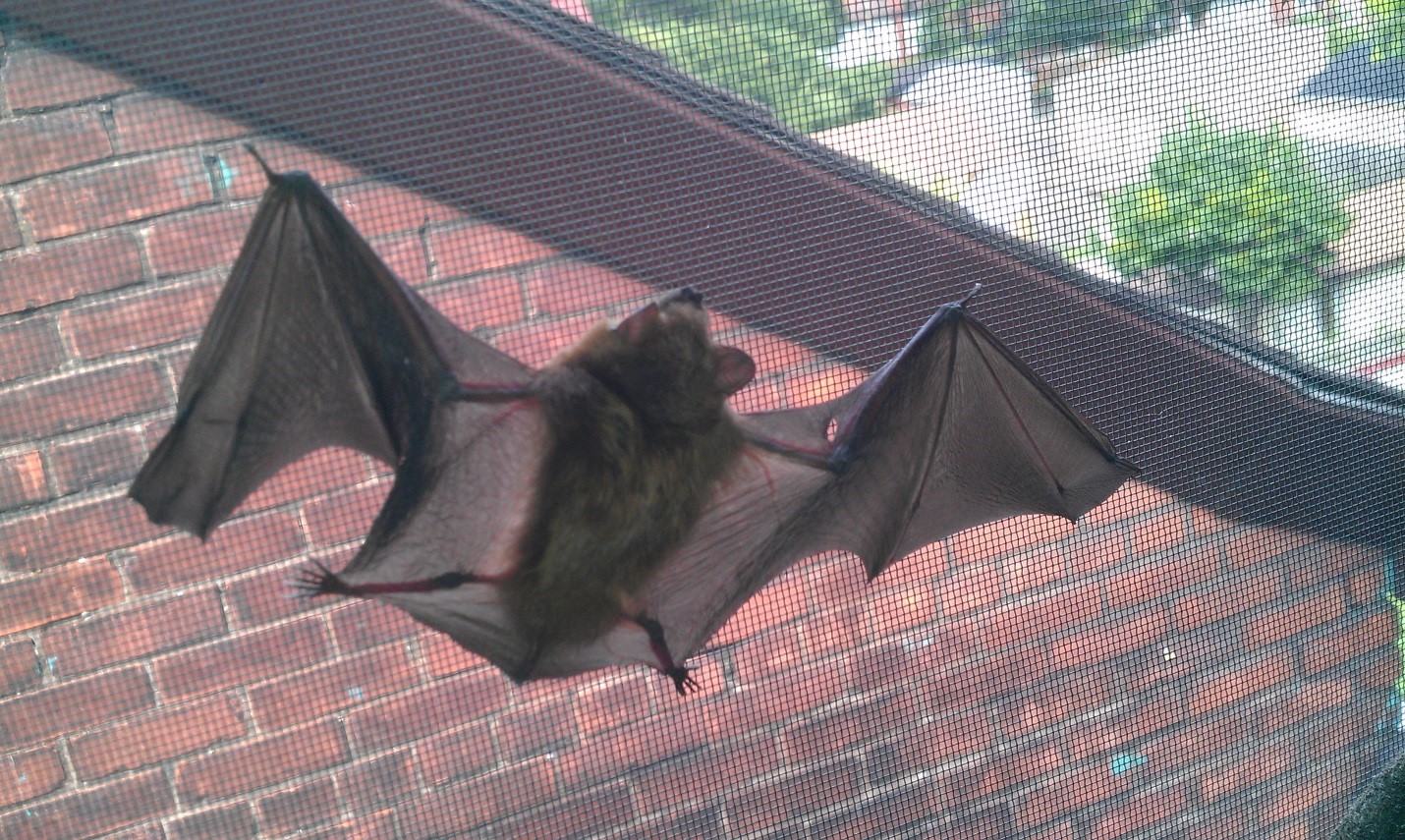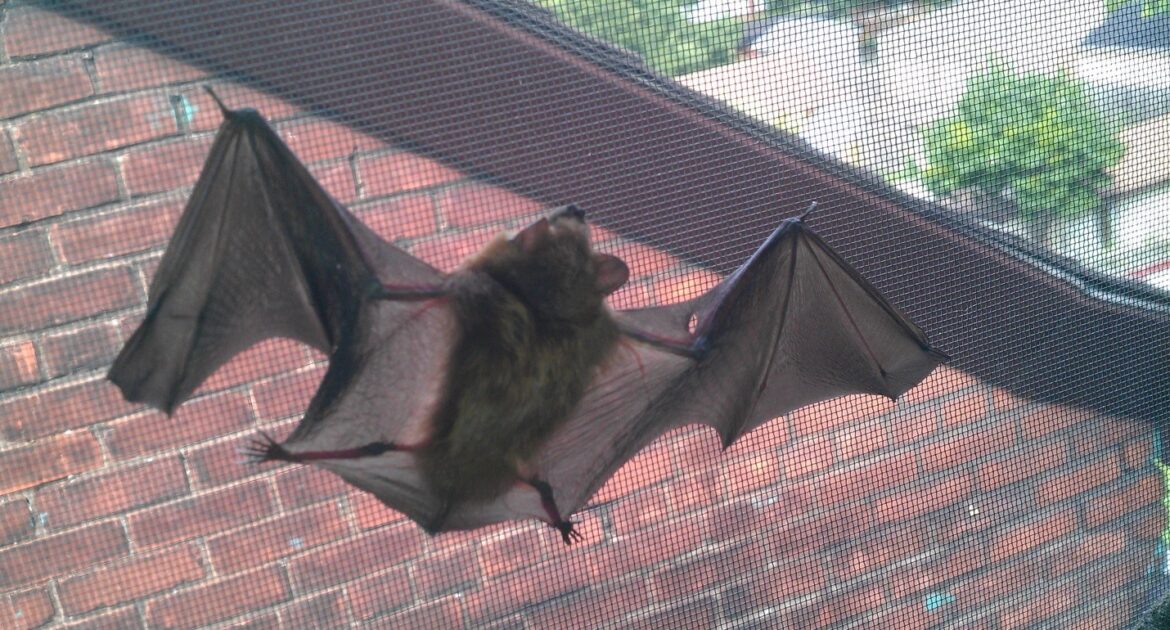A bat can bite in your sleep and you won’t even know. Their sharp teeth make it difficult to detect. Bats have very small and narrow chompers. So, as you’re trying to catch some z’s it’s easy for them to sneak into your room and sink their teeth into you.
An undetected bat bite can lead to many problems. Since 2015, rabies in Ontario has risen for the first time in a decade. According to the Ontario government website, there were 13 cases of rabies in bats last year. Rabies spread easily through other species. It develops from transmitting saliva from an infected animal into an open wound, eyes, mouth or ears.

A bat clinging to a window screen
As we approach the end of August, bats in the Cambridge area begin to search for a place to hide. They sneak into small holes in your attic to build roosts escaping the colder fall weather. Once they are in your home there’s not much preventing them from getting into your bedroom, living room or kitchen.
Losing their fear of humans is one symptom of a rabid bat. Other signs of rabies can alter between docile and aggressive. In its dumb form infected animals become depressed and paralyzed retreating to isolated areas. In its furious form bats are aggressive and gnaw on their own limbs. Common characteristics of rabid bats are dirty looking, rough fur and thin appearance.

Bats frequently enter attics through the gap between the soffit and the brick
In the fall, Cambridge bat removal is in high demand. If you discover bats in your home it’s important to leave them and call a professional. Even a dead animal can still carry rabies. With the rising number of cases it’s important to protect yourself. Always make sure your family and pets are properly vaccinated. Do not trap the animal. This increases your exposure to bites. Keep your distance and call a local bat removal service.
If you come into contact with an infected bat immediately visit your doctor. Rabies can quickly spread into your nervous system and its advanced stages are almost always fatal.
For bat removal in Cambridge contact Skedaddle Humane Wildlife Control today at 1-888-592-0387.




